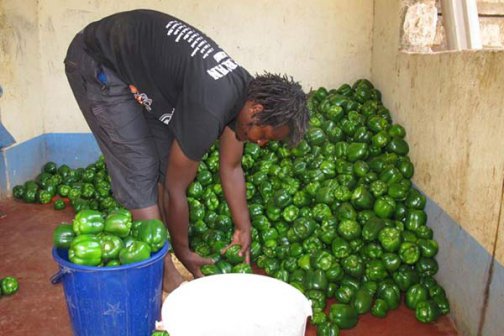As a young boy, Bernard Sila had a dream of becoming either a lawyer to fight for the rights of the less fortunate or a farmer to feed not only residents of dry areas of Ukambani, but also entire country and beyond.
At the time, Sila, now 23, was in Standard Five at Mwiki Primary School in Githurai, Nairobi. Every time he visited his rural home of Kisikioni in Tala, Machakos County, he would get stories of locals suffering and starving due to lack of enough food, largely caused by drought.
Yet in agriculture lessons, their teacher often said farming can be practised even in dry areas using irrigation. “I kept wondering why locals in my area, which is synonymous with drought, were not farming, yet it was possible with irrigation. I resolved I would have to do it,” Sila says.
And today, he makes at least Sh40,000 a week from tomato farming and Sh50,000 from capsicum. This means that on a good month, he makes Sh. 360,000 gross.
After failing to score the pass mark to study law in his 2013 Kenya Certificate of Secondary Education examination, Sila says the only passion he had left was farming.
“After missing the chance to study law, I was not ready to miss on agriculture because those were the two choices in my life,” he says.
In 2014, Sila settled in the village to venture into farming. His immediate challenge was lack of practical skills in farming. To him, primary and high school agriculture lessons were just theory and could not help him.
Unfortunately, there wasn’t any agricultural college or institute around to learn from. Just then, his aunt ventured into capsicum farming. That was great news to Sila and he immediately moved in briefly with his aunt to learn some skills. “I learned everything practically at my aunt’s place.
She was knowledgeable about capsicum farming and her crops were doing well and highly productive, even though they were just 500 stems,” he says. He says the greatest time came when his aunt told him to manage his farm. After four months of managing his aunt’s farm, he left to start his own, having been inspired to do capsicum.
At this point, his second challenge was where to get money to buy seedlings. Luckily, through a friend, Sila received free 300 tomato seedlings from Amiran Kenya Limited. He says the company was giving farmers free tomato seedlings to do planting trials in the area and he was one of the beneficiaries.








